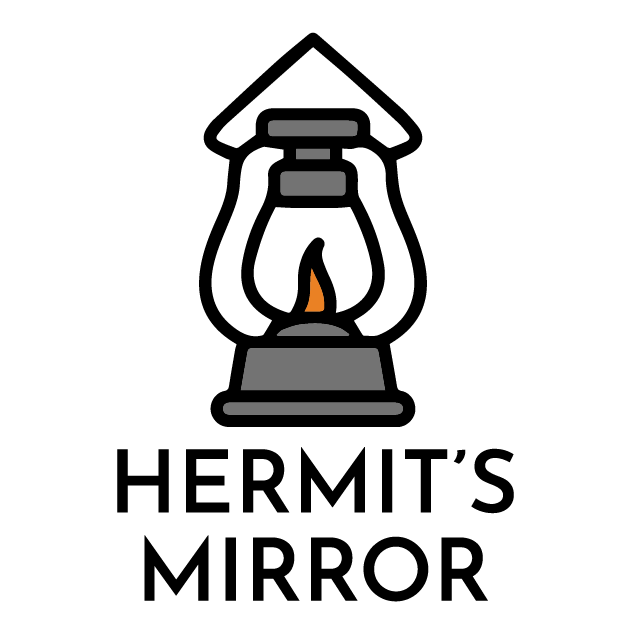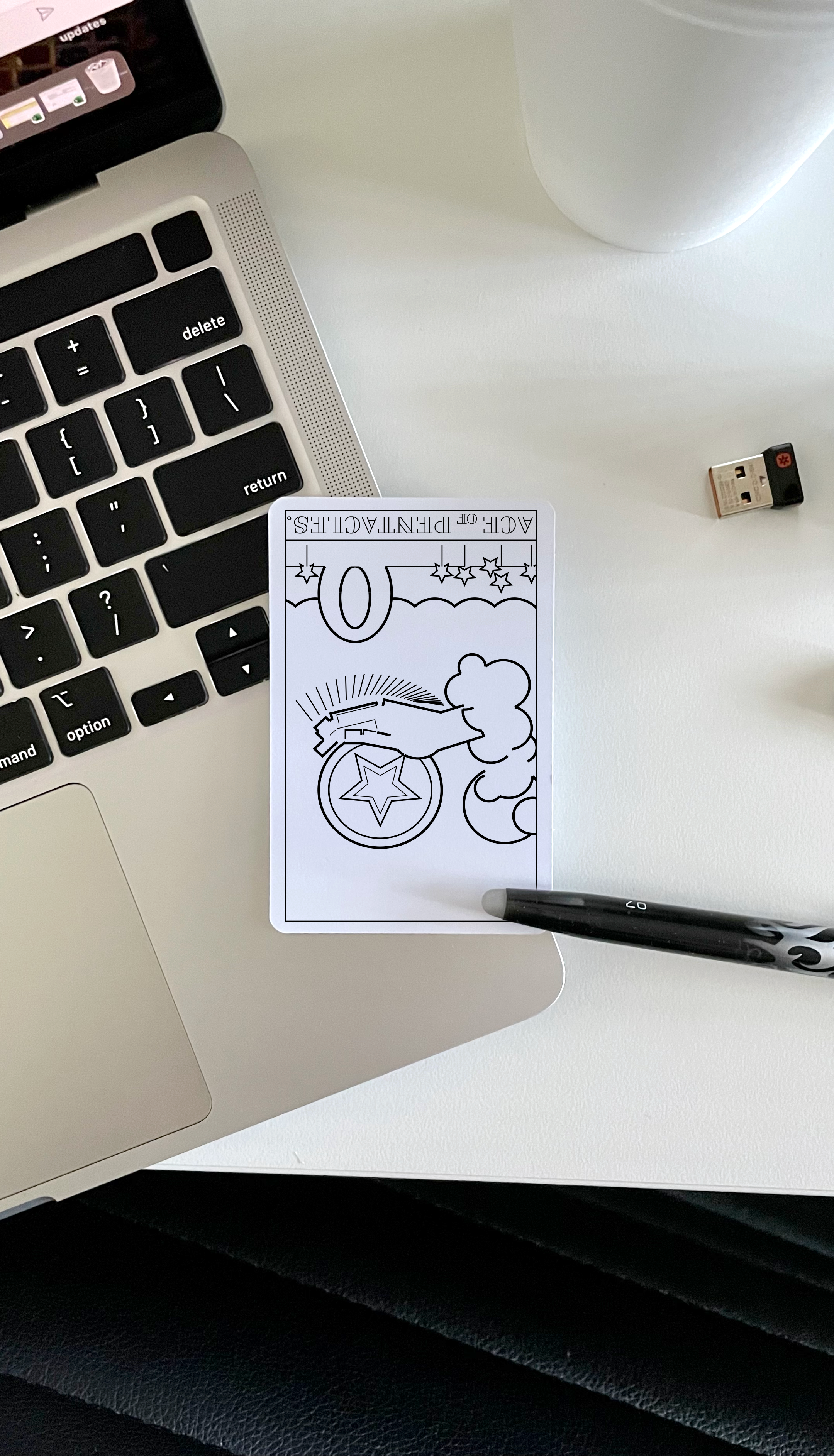How a Reversed Ace Taught Me to Embrace Authentic Self-Investment
It’s one thing to know what the meaning of your tarot cards, and it’s a completely other thing to know what your tarot cards mean in a reading.
What does the Ace of Pentacles mean? Usually it’s read as a sign of a new financial opportunity coming your way. So what would a reversed Ace of Pentacles typically mean? In most most literal form, it would be a sign that a big loss is coming your way. More charitably, it could indicate simply that a big payout is not coming. Those are similar, but different.
They’re also not the only things that a reversed Ace of Pentacles might mean.
To continue with my personal stories of transformation through tarot, I will share a story about taking action that aligned to my values. I learned how to invest in my authentic self and take action that aligned with the person I was, as well as the person I wanted to be, thanks to understanding .
And it was all thanks to that reversed Ace of Pentacles.
If you read my previous story about using tarot to transform in a time of desperation, you may not be surprised to hear that I had to stop reading tarot for myself for a little while because I was getting desperate. I was finally able to recognize that pattern of desperation a little over five years ago. And I was much better prepared to read tarot in a much more honest and self-reflective way that let me linger on my thoughts.
In some ways, the pendulum swung too far in the opposite direction, where I didn’t let myself see decision-making guidance in the cards because I didn’t want them to become a crutch. I let the cards become entirely too vague. But that was what I needed at the time. I needed to spend time getting to know myself and my values, not just some arbitrary goals.
It was around this time that I became familiar with the Biddy Tarot podcast and thus with Biddy Tarot. (Side note: the podcast is no longer updated, but there are lots of good free tips on tarot, and Brigit has some amazing guests on it—it’s how I first heard about Benebell Wen!) If you follow Biddy Tarot long enough, you will also become familiar with the Biddy Tarot Certification Program and/or with Certified Biddy Tarot Readers (maybe now called Advisors?).
Spoiler alert: I am a Certified Biddy Tarot Reader, which you can read about on my About page. But it was not a sure thing.
About a year after I first heard about the program, I signed up for the watchlist, and six months or so later, I finally had the chance to enroll. But when I saw the price tag, I promptly forgot about it. The program cost about $1,000, and I didn’t feel a strong need to be certified to read tarot. After all, who certified Brigit? (I’m guessing no one.)
Tarot is not a regulated industry where certification is required or where certification programs are even vetted by some governing body. It’s the Wild West. Whether you view that as a good thing or bad, it’s the reality. As the Wildly Tarot podcast hosts have joked, you can get a certificate from someone (e.g., them) for doing nothing but ordering the certificate off their website. I knew this, and it was definitely part of my calculation to not get certified when I first had the opportunity.
But a year or two later, when asking my cards about the program and what I could expect from completing it, especially in terms of financial return, a reversed Ace of Pentacles helped me determine that I should in fact go through the program.
That may not seem like an obvious interpretation at first—it sure was not to me—because the reversed Ace of Pentacles is the opposite of a good financial investment. But it helped reframe my thinking about tarot certification, and it helped me realize what was important to me as a professional tarot reader.
How?
I let the cards do what I didn’t let them do way back when I was applying to grad school. I let them show me my fears so that I could do some deep self-reflection about my hopes. This seemingly inauspicious forecast helped me examine what I wanted to see in the cards and what I expected from the program. It also helped me understand what was important to me and how I could achieve that despite a potentially bad (or non-good) financial return on investment.
The Ace of Pentacles is like a seed. It has the potential to bear fruit, but you have to bury it first, and then you have to water it. And if all works out, then you will eventually get to harvest it. Upright, it can be a gift from the universe. Reversed, at least in this reading, it was a sign of no gift from the universe but an equally important gift from me.
I wanted this. I didn’t need it. I wanted permission to do what I wanted to do. I was in a position to afford the fee personally, even if it was a lot for my business. Seeing the reversed Ace and knowing that I could not expect that this would be a great way to turn $1,000 into a lot more, I stopped thinking about the program as a financial means to a financial end.
Instead, I thought about it in terms of who I was in this context—a fledgling small business owner with a lot of self-imposed insecurities about my identity as an “entrepreneur” and a low tolerance for risk—and what I wanted—an opportunity to expand and learn. And with those combined, I was able to see what I didn’t know I wanted. I wanted to take myself seriously as a small business owner and as a professional in this field. I wanted to know that I was committed to making this work. And for many of us, there is very little that is as motivating to staying committed as the fear of feeling like you’ve wasted a good chunk of money.
That may sound bad, and maybe it is bad since it’s based in fear. But that fear and commitment would help me see the program as an investment in myself and the person I wanted to be (an actual tarot professional, not a hobbyist). I would pay for it, and because it was not just loose change and had a clear end marker, I made sure to make time in my schedule for it. It wasn’t easy, and it wasn’t a quick thing for me, at least not the way I did it. And I had my down periods and doubts about finishing at certain points. But it proved to be very affirming, and it helped me to see that I needed to invest in myself as a professional if I was going to pursue this line of work professionally, not just once, but continuously.
While I definitely don’t credit my certification for keeping me in business two-and-a-half years later, I do think that my decision to go through it at that time, once I had a better understanding of who I was and what I wanted, helped me believe in myself enough to weave my fate and re-establish the person I wanted to be. For me to be able to call myself a successful small business owner? That’s significant transformation.
If you’re curious to hear more about my own experience and the value I found in going through the certification program, watch my interview with Brigit (Biddy) herself.
As for what actually happened with business finances, it was a fine financial investment. It was expensive for me at the time when my business was not thriving, but it also paid for itself when I completed the program and became one the site’s recommended readers for a time (a perk for recent grads). Could I have invested that money differently for a greater financial return? Probably. But as I’ve described, completing the program was about so much more than the immediate (financial) return on investment.
If you’re looking to use tarot to transform your life, learn how I can help guide you through that.


